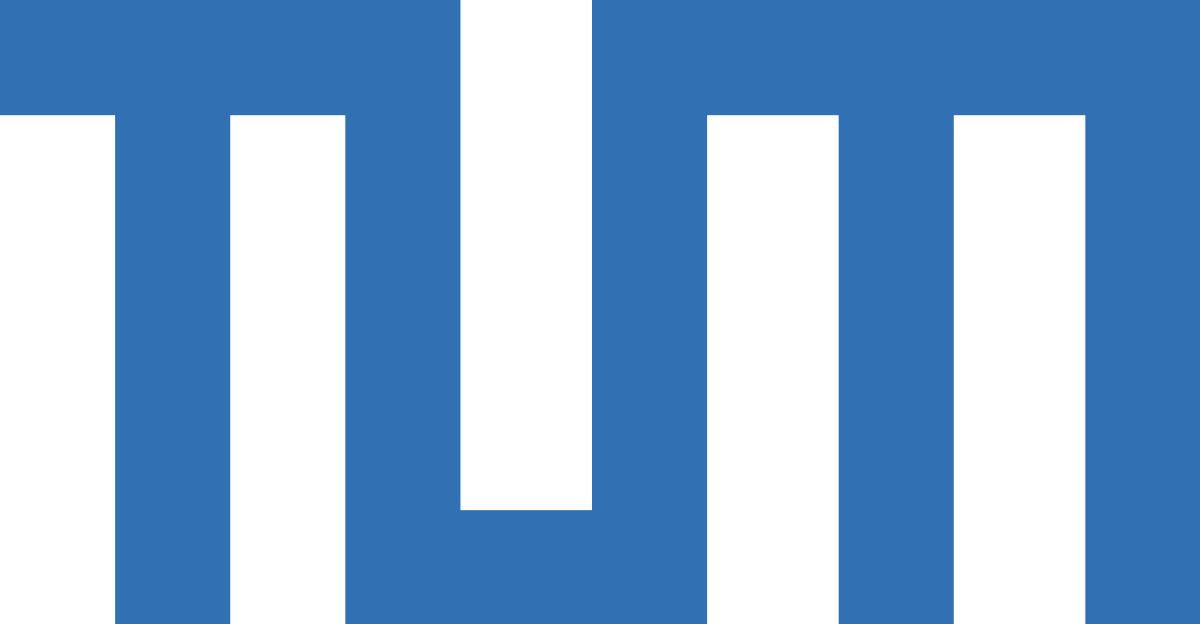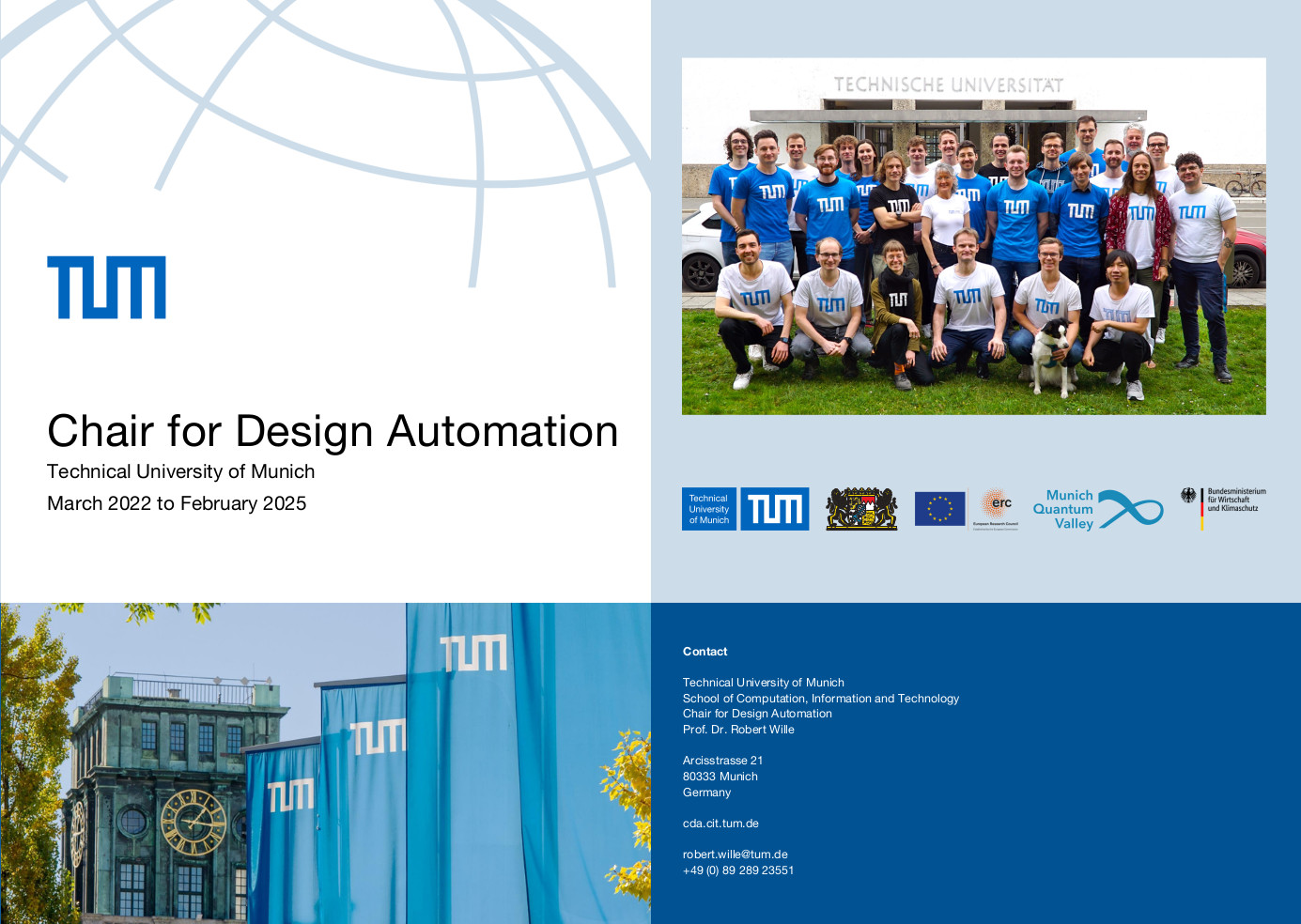
Summer Semester 2024
VI Design Automation and Simulation for Microfluidic Devices
| Course ID | Title | Type | Weekly Hours | Teachers | Rhythm |
|---|---|---|---|---|---|
| 1799 | Design Automation and Simulation for Microfluidic Devices | VI | 3 | Robert Wille | weekly |
Lecturer(s): Robert Wille
Content:
The domain of microfluidics is a multi-disciplinary field which deals with the precise control and manipulation of fluids at the micro-scale. Corresponding devices, often also known as “Lab-on-a-Chip” (LoC), are used to realize experiments or operations in domains such as medicine, (bio-)chemistry, biology, pharmacology, etc. The main idea is to realize assays, which are originally conducted in bulky and expensive laboratories, on a minimized, integrated, and automated single device. Prominent (although simple) examples include the pregnancy test or the Covid-19 test; but much more elaborated devices exist.
However, the design and layout of microfluidic devices is not trivial: Channels must be properly dimensioned and connected, the used samples and chemicals must be injected into the chip at the right pressure, and mixing, heating, or incubation processes must be initiated at the right time. This requires dedicated expertise on a huge number of parameters and, eventually, design automation and simulation methods. This module provides
- an overview of the various applications which are suited for microfluidic devices,
- an overview of the different biochip platforms that are available to realize those applications,
- a detailed introduction into design automation for microfluidic devices,
- a detailed introduction into simulation methods for microfluidic devices, as well as
- an overview of fabrication procedures for microfluidic devices. Overall, after the lecture, students have a complete understanding of how to realize a microfluidic application from the initial idea to a prototypical implementation.
Date and time:
- Lecture:
- Tue, 09:45-12:15 3999, Seminarraum (0509.04.999)
Further information:
- Contact: robert.wille@tum.de
- ECTS: 5
- Hours: 3VI
- Language: English
- Subjects: Master Computer Science and Master Electrical Engineering
VI Software for Quantum Computing
| Course ID | Title | Type | Weekly Hours | Teachers | Rhythm |
|---|---|---|---|---|---|
| 1797 | Software for Quantum Computing | VI | 3 | Robert Wille | weekly |
Lecturer(s): Robert Wille
Content:
Quantum computers have the potential to solve certain tasks that would take millennia to complete even with the fastest (conventional) supercomputer. Numerous quantum computing applications with a near-term perspective (e.g., for finance, chemistry, machine learning, optimization) and with a long-term perspective (i.e., cryptography, unstructured search) are currently investigated. However, while impressive accomplishments can be observed in the physical realization of quantum computers, the development of automated methods and software tools that provide assistance in the design and realization of applications for those devices is at risk of not being able to keep up with this development anymore. This may lead to a situation where we might have powerful quantum computers but hardly any proper means to actually use them.
This module provides an in-depth introduction into the internals of quantum computing software. This includes
- an elaboration on the differences between classical computing and quantum computing,
- an introduction to the design flow for quantum computing applications,
- a detailed coverage of data-structures and method dedicated to quantum computing,
- a detailed coverage of software tools and methods for important design tasks such as quantum circuit simulation, quantum circuit compilation, quantum circuit verification, etc., as well as
- corresponding hands-on experiences of those tools considering actual quantum algorithms as well as quantum computing platforms.
Location and time:
- Lecture:
- Tue, 13:15-15:45 3999, Seminarraum (0509.04.999)
Further information:
- Contact: robert.wille@tum.de
- ECTS: 5
- Hours: 3VI
- Language: English
- Subjects: Master Computer Science and Master Electrical Engineering
SE Seminar on Topics in Design Automation
| Course ID | Title | Type | Weekly Hours | Teachers | Rhythm |
|---|---|---|---|---|---|
| 4449 | Seminar on Topics in Design Automation | SE | 2 | Robert Wille | weekly |
Lecturer(s): Robert Wille
Content:
In this seminar, current topics from the area of Design Automation are discussed among the participants. A structured introduction into scientific literature regarding paper reading, literature research, presentation techniques, and scientific writing is given. The participants are enabled to independently perform all required steps to present a scientific topic in form of a review paper and an oral presentation.
Location and time:
- Seminar:
- Tue, 16:45-17:30 4981, Besprechung (0509.05.981)
Further information:
- Contact: robert.wille@tum.de
- ECTS: 5
- Hours: 2SE
- Language: English
- Subjects: Master Electrical Engineering
VI Machine Learning - Methods and Tools
| Course ID | Title | Type | Weekly Hours | Teachers | Rhythm |
|---|---|---|---|---|---|
| 1908 | Machine Learning - Methods and Tools | VI | 4 | Robert Wille, Lorenzo Servadei | weekly |
Lecturer(s): Robert Wille, Lorenzo Servadei
Content:
- Digital Transformation and Machine Learning
- Python, standard libraries, SciPY and NumPy
- Machine learning theory, regularization, error and noise
- Data analysis, pre-processing, visualization
- Introduction to Machine Learning Algorithms
- Introduction to feedforward neural networks and convolutional neural networks, RNNs, LSTM
- Training neural networks, attention models, unsupervised learning, reinforcement learning, hyperparameter optimization
Location and time:
- Lecture:
- Fri, 13:00-15:30 (virtual)
Further information:
- Contact: robert.wille@tum.de
- ECTS: 5
- Hours: 2VI
- Language: English
- Subjects: Master Electrical Engineering
Grundlagenpraktikum: Rechnerarchitektur
| Course ID | Title | Type | Weekly Hours | Teachers | Rhythm |
|---|---|---|---|---|---|
| 9008 | Rechnerarchitektur (IN0005) | PR | 3 | Martin Schulz, Anna Mittermair, Damian Rovara, Robert Wille | weekly |
Content:
Over the first half of the course, lecture videos, tutorials, and homework are used to teach fundamental topics in computer architecture, including:
- Introduction to C Programming
- Secure programming
- Debugging tools and optimization strategies
- System Design
- Planning and reading of combinational and sequential circuits
- Realization of circuits using the SystemC library for C++
- Optimization strategies for circuits
- Assembly Language Programming
- Usage of x86 assembly language
- Optimization of C programs
In the second half of the semester, students work on a practical project relating to one of the two branches (System Design and Assembly Language Programming). Projects are implemented in groups of three and finished with a presentation at the end of the semester.
Further information:
- Contact: gra@caps.cit.tum.de
- ECTS: 5
- Hours: 3PR
- Language: German
- Subjects: Bachelor Computer Science



